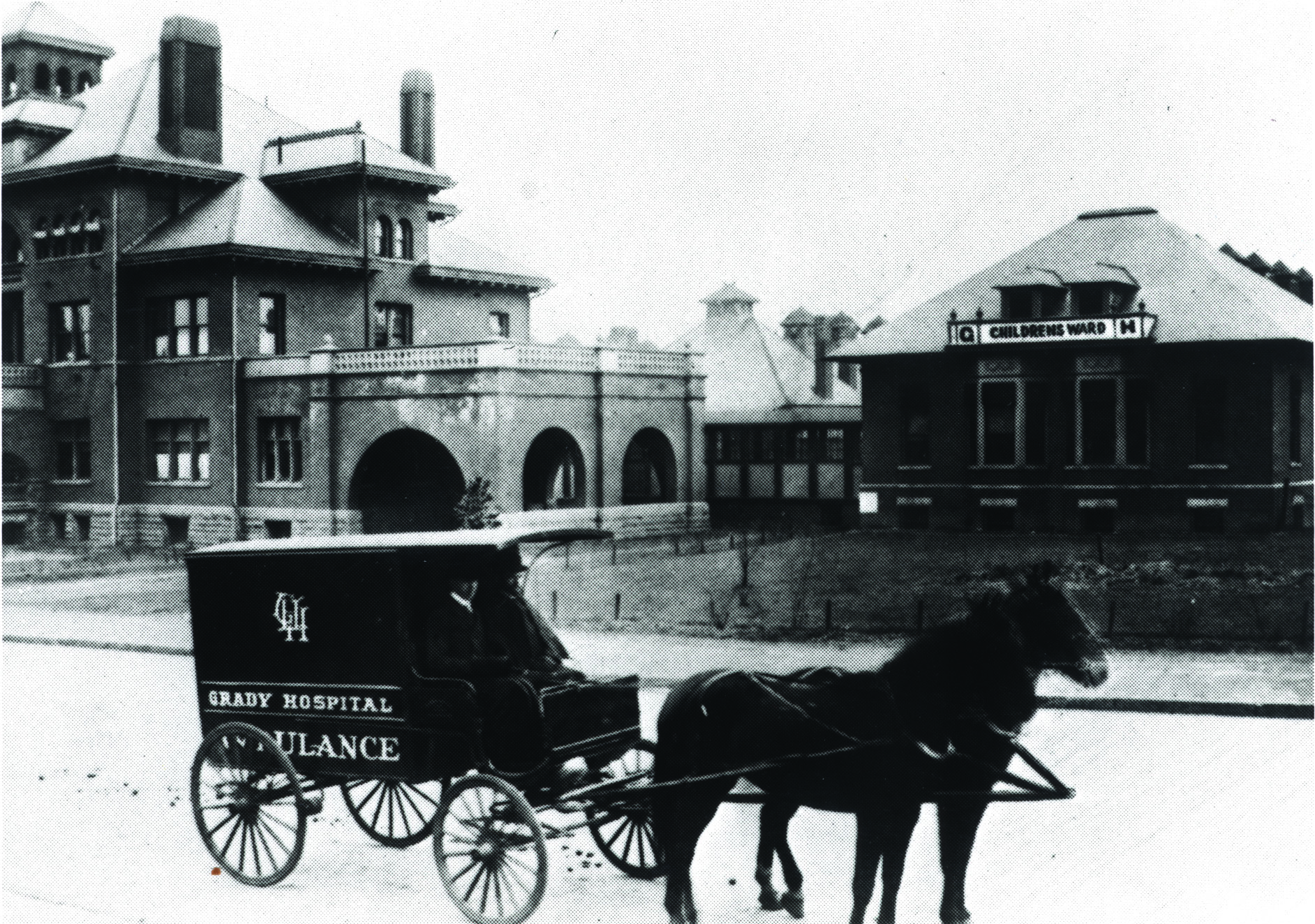
Atlanta's first medical college was established in the decade after the city was named and the decade before the Civil War. The college was a precursor to the Emory University School of Medicine – one of the foremost private facilities for medical education in the Southeast. The school is located on the Emory campus in Atlanta's historic Druid Hills area and in Emory medical facilities downtown.
The forerunner of the school dates from 1854, when the Georgia General Assembly granted a charter for Atlanta Medical College. Students attended the first session the following year, and in 1859, with a $15,000 appropriation from the state legislature, the first building was erected at Butler and Armstrong streets near the site now occupied by Grady Memorial Hospital. A series of mergers followed. In 1898, Atlanta Medical College joined with the Southern Medical College (founded in 1878) to form the Atlanta College of Physicians and Surgeons. Fifteen years later, this college merged with Atlanta School of Medicine (founded in 1905) under the historic name Atlanta Medical College. Then in 1915, the amalgamated school became Emory University School of Medicine. At a meeting of university alumni in 1919, it was decided that graduates of the antecedent institutions would become alumni of Emory University School of Medicine.

Incorporating the old medical college into Emory University led to noteworthy developments in both construction of facilities and strengthening of educational programs. Campus facilities for teaching and research in basic sciences were completed in 1917 with construction of the John P. Scott Anatomy Building and the T.T. Fishburne Physiology Building, still in use today. With their opening, the first two years of medical instruction were moved from downtown Atlanta to Emory. That same year, the university constructed the J.J. Gray Clinic Building on Armstrong Street for outpatient care of the indigent sick and for most of the clinical instruction of third-year students. Fourth-year work was carried out in the old college building at Butler and Armstrong streets and in nearby Grady Memorial Hospital, established in 1892.
Also in 1917, the School of Medicine was accepted into membership in the Association of American Medical Colleges (AAMC) and was approved by the Council on Education of the American Medical Association (AMA), now the Council on Medical Education. Today, the AAMC's Liaison Committee on Medical Education accredits the School of Medicine. Emory University is accredited by the Southern Association of Colleges and Schools Commission on Colleges to award associate, baccalaureate, master's, doctorate and professional degrees.
Today the School of Medicine is part of the Robert W. Woodruff Health Sciences Center, which encompasses the components of Emory University concerned with patient care, education of health professionals, research affecting health and illness, and policies for prevention and treatment of diseases. The Center's namesake, the legendary leader of The Coca-Cola Company, was a man whose vision and generosity left a lasting imprint on Emory and the city of Atlanta. His first gift to Emory benefited the School of Medicine in 1937, when he donated $50,000 for the Robert Winship Clinic for Neoplastic Diseases, now known as the Winship Cancer Institute.
Other important developments occurred in this era. The AAMC recommended that Emory place more emphasis on bedside teaching. Instead of relying exclusively on volunteer faculty, the School of Medicine began hiring full-time faculty. All have shaped the medical school's history in some way: by serving valiantly in World War II (as they had in World War I), ensuring a firm financial base for the school with the organization of The Emory Clinic in 1953, or pioneering new techniques such as developing a brain mapping system that allows neurosurgeons to treat Parkinson's disease.
Through the years, the medical school found partners in and outside of Emory to strengthen its efforts in medical education, biomedical research and patient care. (Grady Memorial Hospital, the Atlanta Veterans Affairs Medical Center, and Children's Healthcare of Atlanta are just a few). Today faculty clinicians in affiliated hospitals and Emory's own teaching hospitals are responsible for millions of patient service visits each year. Emory School of Medicine alumni include about one-fourth of all physicians practicing in Georgia.

